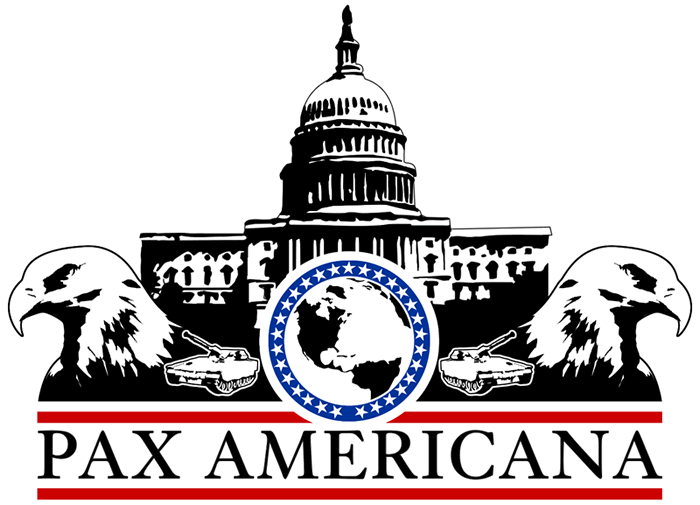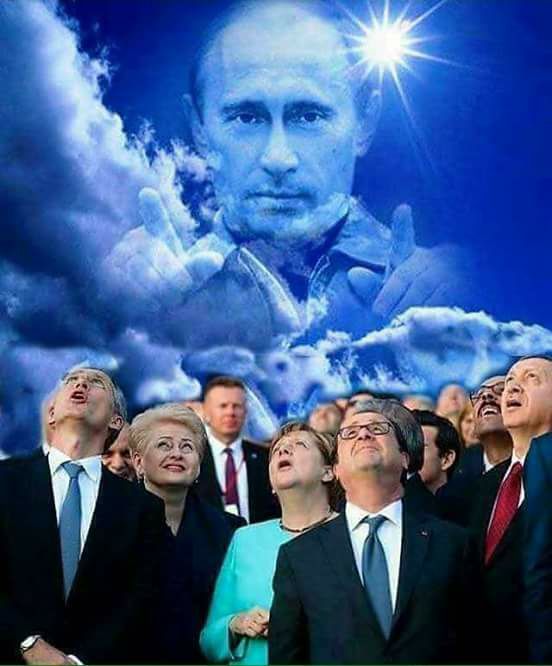
Views: 1970
There was a time when Russophobia served as an effective form of population control – used by the American ruling class in particular to command the general US population into patriotic loyalty. Not any longer. Now, Russophobia is a sign of weakness, of desperate implosion among the US ruling class from their own rotten, internal decay.
This propaganda technique worked adequately well during the Cold War decades when the former Soviet Union could be easily demonized as «godless communism» and an «evil empire». Such stereotypes, no matter how false, could be sustained largely because of the monopoly control of Western media by governments and official regulators.
The Soviet Union passed away more than a quarter of a century ago, but Russophobia among the US political class is more virulent than ever.
 This week it was evident from Congressional hearings in Washington into alleged Russian interference in US politics that large sections of American government and establishment media are fixated by Russophobia and a belief that Russia is a malign foreign adversary.
This week it was evident from Congressional hearings in Washington into alleged Russian interference in US politics that large sections of American government and establishment media are fixated by Russophobia and a belief that Russia is a malign foreign adversary.
However, the power of the Russophobia propaganda technique over the wider population seems to have greatly diminished from its Cold War heyday. This is partly due to more diverse global communications which challenge the previous Western monopoly for controlling narrative and perception. Contemporary Russophobia – demonizing Russian President Vladimir Putin or Russian military forces – does not have the same potency for scaring the Western public. Indeed, due to greater diversity in global news media sources, it is fair to say that «official» Western depictions of Russia as an enemy, for example allegedly about to invade Europe or allegedly interfering in electoral politics, are met with a healthy skepticism – if not ridicule by many Western citizens.
What is increasingly apparent here is a gaping chasm between the political class and the wider public on the matter of Russophobia. This is true for Western countries generally, but especially in the US. The political class – the lawmakers in Washington and the mainstream news media – are frenzied by claims that Russia interfered in the US presidential elections and that Russia has some kind of sinister leverage on the presidency of Donald Trump.
But this frenzy of Russophobia is not reflected among the wider public of ordinary American citizens. Rabid accusations that Russia hacked the computers of Trump’s Democrat rival Hillary Clinton to spread damaging information about her; that this alleged sabotage of American democracy was an «act of war»; that President Trump is guilty of «treason» by «colluding» with a «Russian influence campaign» – all of these sensational claims seem to be only a preoccupation of the privileged political class. Most ordinary Americans, concerned about making a living in a crumbling society, either don’t buy the claims or view them as idle chatter.
Kremlin spokesman Dmitry Peskov this week dismissed the Congressional hearings into alleged Russian interference in US politics. He aptly said that US lawmakers and the corporate media have become «entangled» in their own fabrications. «They are trying to find evidence for conclusions that they have already made», said Peskov.
Other suitable imagery is that the US political class are tilting at windmills, chasing their own tails, or running from their own shadows. There seems to be a collective delusional mindset.
Unable to accept the reality that the governing structure of the US has lost legitimacy in the eyes of the people, that the people rebelled by electing an outsider in the form of business mogul-turned-politician Donald Trump, that the collapse of American traditional politics is due to the atrophy of its bankrupt capitalist economy over several decades – the ruling class have fabricated their own excuse for demise by blaming it all on Russia.
The American ruling class cannot accept, or come to terms, with the fact of systemic failure in their own political system. The election of Trump is a symptom of this failure and the widespread disillusionment among voters towards the two-party train wreck of Republicans and Democrats. That is why the specter of Russian interference in the US political system had to be conjured up, by necessity, as a way of «explaining» the abject failure and the ensuing popular revolt.
Russophobia was rehabilitated from the Cold War closet by the American political establishment to distract from the glaring internal collapse of American politics.
The corrosive, self-destruction seems to know no bounds. James Comey, the head of the Federal Bureau of Investigation, told Congress this week that the White House is being probed for illicit contacts with Russia. This dramatic notice served by Comey was greeted with general approval by political opponents of the Trump administration, as well as by news media outlets.
The New York Times said the FBI was in effect holding a «criminal investigation at the doorstep of the White House».
Other news outlets are openly airing discussions on the probability of President Trump being impeached from office.
The toxic political atmosphere of Russophobia in Washington is unprecedented. The Trump administration is being crippled at every turn from conducting normal political business under a toxic cloud of suspicion that it is guilty of treason from colluding with Russia.
President Trump has run afoul with Republicans in Congress over his planned healthcare reforms because many Republicans are taking issue instead over the vaunted Russian probe.
When Trump’s Secretary of State Rex Tillerson was reported to be skipping a NATO summit next month but was planning to visit Moscow later in the same month, the itinerary was interpreted as a sign of untoward Russian influence.
 What makes the spectacle of political infighting so unprecedented is that there is such little evidence to back up allegations of Trump-Russia collusion. It is preponderantly based on innuendo and anonymous leaks to the media, which are then recycled as «evidence».
What makes the spectacle of political infighting so unprecedented is that there is such little evidence to back up allegations of Trump-Russia collusion. It is preponderantly based on innuendo and anonymous leaks to the media, which are then recycled as «evidence».
Devin Nunes, the ranking Republican on the House Intelligence Committee, said earlier this week that he has seen no actual evidence among classified documents indicating any collusion between the Trump campaign team and the Russian government.
Even former senior intelligence officials, James Clapper and Michael Morell who are no friends of Trump, have lately admitted in media interviews that there is no such evidence.
Yet, FBI chief James Comey told Congress that his agency was pursuing a potentially criminal investigation into the Trump administration, while at the same time not confirming or denying the existence of any evidence.
And, as already noted, this declaration of open-ended snooping by Comey on the White House was met with avid approval by political opponents of Trump, both on Capitol Hill and in the corporate media.
Let’s just assume for a moment that the whole Trump-Russia collusion story is indeed fake. That it is groundless, a figment of imagination. There are solid reasons to believe that is the case. But let’s just assume here that it is fake for the sake of argument.
That then means that the Washington seat of government and the US presidency are tearing themselves apart in a futile civil war.
The real war here is a power struggle within the US in the context of ruling parties no longer having legitimacy to govern.
This is an American implosion. A historic Made-in-America meltdown. And Russophobia is but a symptom of the internal decay at the heart of US politics.
Originally published on 2017-03-24
About the author: Finian Cunningham is a former editor and writer for major news media organizations. He has written extensively on international affairs, with articles published in several languages.
Source: Strategic Culture Foundation
Origins of images: Facebook, Twitter, Wikimedia, Wikipedia, Flickr, Google, Imageinjection, Public Domain & Pinterest.
Read our Disclaimer/Legal Statement!
Donate to Support Us
We would like to ask you to consider a small donation to help our team keep working. We accept no advertising and rely only on you, our readers, to keep us digging the truth on history, global politics, and international relations.
FOLLOW US ON OUR SOCIAL PLATFORMS









